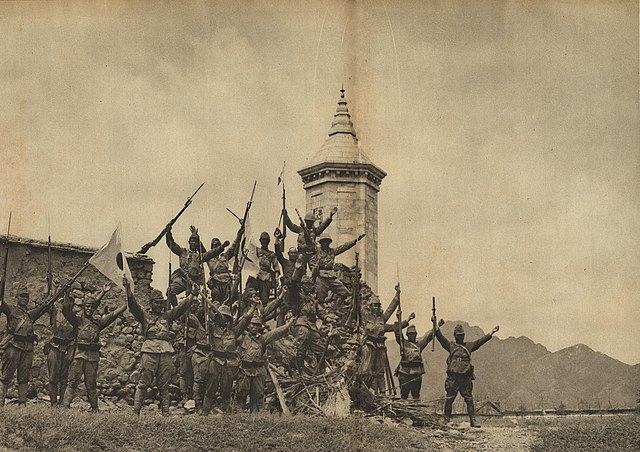In various East Asian languages such as Chinese, Japanese, Korean, and Vietnamese, the phrase "Wànsuì", "Banzai", "Manse", and "Vạn tuế", respectively, meaning "myriad years" is used to wish long life, and is typically translated as "Long live" in English. The phrase originated in ancient China as an expression used to wish long life to the emperor. Due to the historical political and cultural influence of Chinese culture on the East Asian cultural sphere, in the area, and in particular of the Classical Chinese language, cognates with similar meanings and usage patterns have appeared in many East Asian languages and Vietnamese. In some countries, this phrase is mundanely used when expressing feeling of triumph, typically shouted by crowds.
Ten thousand years
A late-1960s era bridge on Hwy 209 in Shennongjia, Hubei, with the inscription "伟大的领袖毛主席万岁" (Long live the great leader Chairman Mao!)
The two slogans that contain the term wànsuì ("Long live the People's Republic of China!", and "Long live the solidarity of the peoples of the world!") on the Tiananmen gatehouse in Beijing
A group of Japanese soldiers during World War II shouting "banzai!" near Beijing.
Viva, vive, and vivat are interjections used in the Romance languages. Viva in Spanish, Portuguese, and Italian, Vive in French, and Vivat in Latin are subjunctive forms of the verb "to live." Being the third-person, subjunctive present conjugation, the terms express a hope on the part of the speaker that another should live. Thus, they mean "(may) he/she/it/they live!" and are usually translated to English as "long live."
Viva o 25 de abril graffiti in Portugal.
A frame from the trailer for Viva Zapata!






